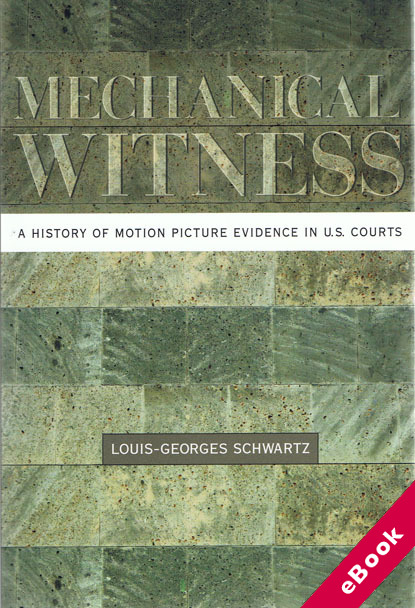
The device(s) you use to access the eBook content must be authorized with an Adobe ID before you download the product otherwise it will fail to register correctly.
For further information see https://www.wildy.com/ebook-formats
Once the order is confirmed an automated e-mail will be sent to you to allow you to download the eBook.
All eBooks are supplied firm sale and cannot be returned. If you believe there is a fault with your eBook then contact us on ebooks@wildy.com and we will help in resolving the issue. This does not affect your statutory rights.
Mechanical Witness is the first cultural and legal history charting the changing role and theoretical implications of film and video use as courtroom evidence. Schwartz moves from the earliest employment of film in the courts of the 1920s to the notious 1991 Rodney King video, revealing how the courts have developed a reliance on film and video technologies and contributed to the growing influence of visual media as a dominant mode of knowledge formation.
At the same time, film and video in juridical contexts has developed a distinct theoretical legacy. The particular qualities of film as evidence both resonate with and contradict existing scholarship-focusing on economic, social, or aesthetic factors-which hitherto has defined film's status and cultural contribution. In the context of a trial, the possible meanings of a film change from its meanings when shown in a movie theater or broadcast on television, yet the public (and cinema scholars) tend to assume that the two are the same.
Mechanical Witness demonstrates that we must understand evidentiary film and video's institutional specificity if we are to understand the full effects of motion picture technologies on our culture. This study sets the terms for a long overdue assessment of how the entertainment industry has shaped our film viewing practices, the place of moving picture evidence in the courtroom, and the social and cultural consequences of these intertwined histories.